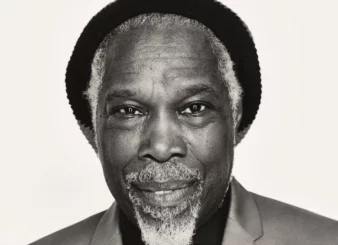The role of insight teams is undergoing a profound transformation.
Fuelled by AI, automation, and evolving stakeholder expectations, the demands on today’s insight leaders are sharper, more complex, and more strategic than ever.
The critical question now facing the industry is no longer “how do we keep up?” but “what does true excellence look like in this new landscape?”
Drawing on the latest intelligence from Kantar, Ipsos, System1, and industry-leading practitioners, here’s a perspective on the emerging blueprint for success — and how organisations can future-proof themselves by investing early in in-demand consumer analytics and the evolving skillsets in insights jobs.
The New Skillsets Defining Insight Excellence
Success in insights today demands a new breed of expertise — one that fuses technical capability with commercial and creative intelligence:
-
AI fluency combined with human storytelling: Mastering AI tools is only the start; the true differentiator lies in the ability to translate complex outputs into narratives that influence decision-making.
-
Data synthesis over data gathering: Teams that can connect disparate data points into strategic insights will lead the next generation of decision-making.
-
Commercial acumen as standard: Insight professionals must think beyond research outputs to business outcomes, embedding themselves deeply within the commercial ambitions of the organisation.
For businesses serious about excelling in in-demand consumer analytics, developing these skillsets in insights jobs must become a strategic priority.
Rethinking Team Structures for Agility and Influence
Structural change is also essential. The most progressive teams are moving towards:
-
Lean, agile pods: Small, expert teams empowered to pivot quickly in response to business needs.
-
Embedded agency-client hybrids: Breaking down traditional silos to deliver seamless, end-to-end insight capabilities.
-
Cross-functional collaboration: Stronger integration with brand, customer experience, and strategy functions to ensure insights are not just heard but acted upon.
The future belongs to those who design their teams not just for efficiency, but for influence.
Building the Right Technology Foundations
Technology is no longer an optional enabler — it is a strategic lever:
-
Automation is central: Insight functions must invest in automation tools that liberate human talent from repetitive tasks, allowing more focus on interpretation, innovation, and strategic guidance.
In an environment where in-demand consumer analytics is a competitive advantage, the right tech stack will determine which organisations win.
Cultivating a Culture of Strategic Leadership
However, perhaps the most significant shift is cultural. The best insight teams of the future will be defined not only by what they do, but how they lead:
-
High emotional intelligence: Teams thrive under leaders who prioritise psychological safety, trust, and empowerment.
-
Focus on clarity over complexity: Insight narratives must cut through the noise and catalyse action.
-
Positioned as strategic advisors: High-performing teams will earn — and demand — a seat at the strategic table.
Culture is no longer a “soft” consideration; it is a critical pillar of insight excellence.
Winning Strategies from Top Insight Organisations
Leading teams are already embracing innovative models to stay ahead:
-
Modular, targeted training: Rapid upskilling in AI, data storytelling, and commercial impact thinking.
-
Insight-as-a-service models: Increasing flexibility and scalability without losing depth.
-
Collaborative deliverables: Moving away from static decks towards dynamic, live problem-solving sessions that co-create solutions with stakeholders.
The insight teams that thrive in 2025 will be those that anticipate the future — not react to it.
Investing now in the right skillsets in insights jobs, embracing in-demand consumer analytics, and fostering a culture of strategic leadership will define the organisations that lead, not follow.
If you’re navigating these shifts — or ready to discuss what future-ready insight leadership looks like in practice — I would welcome a conversation.










